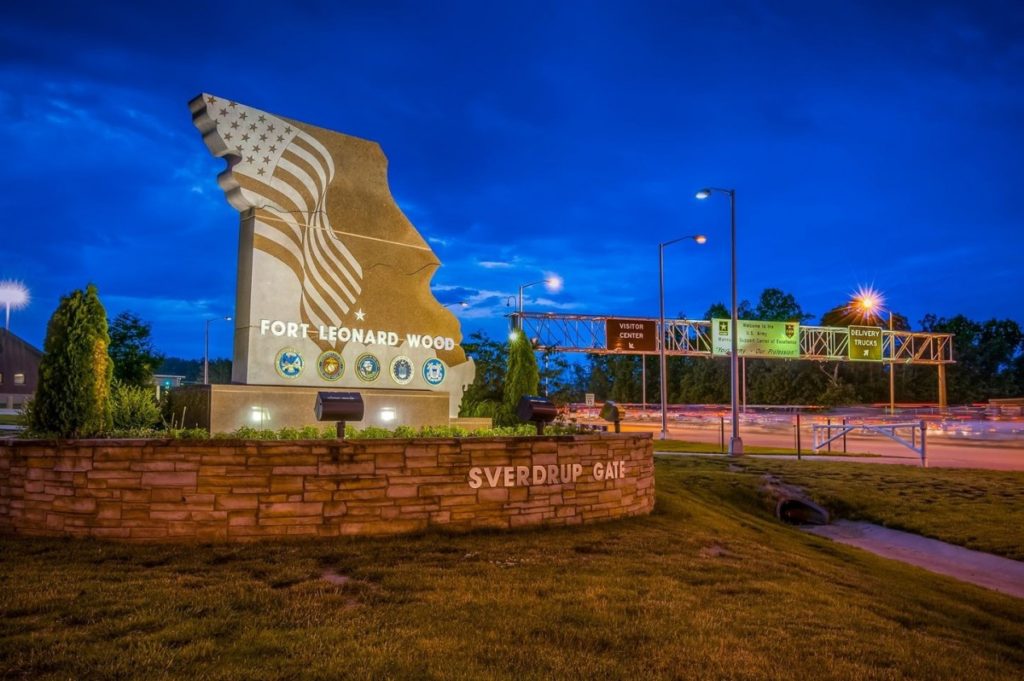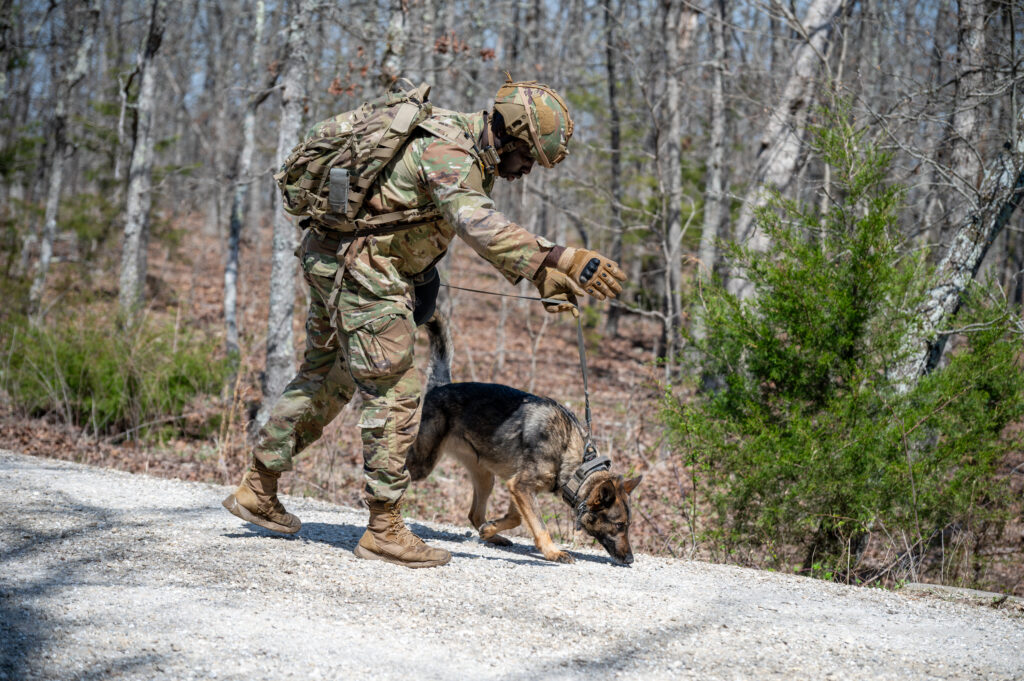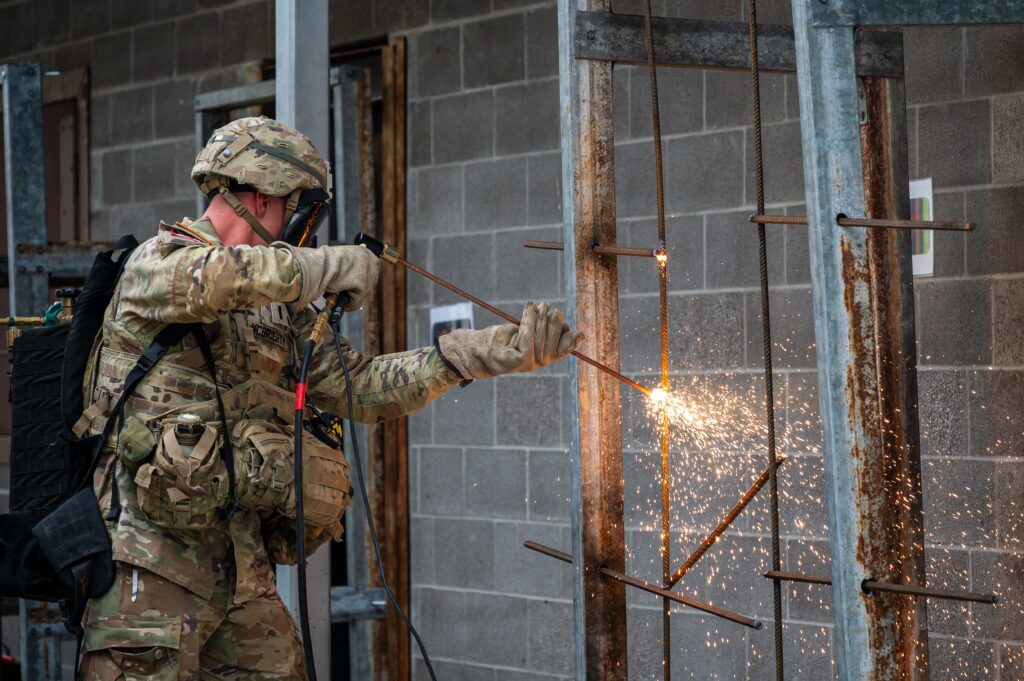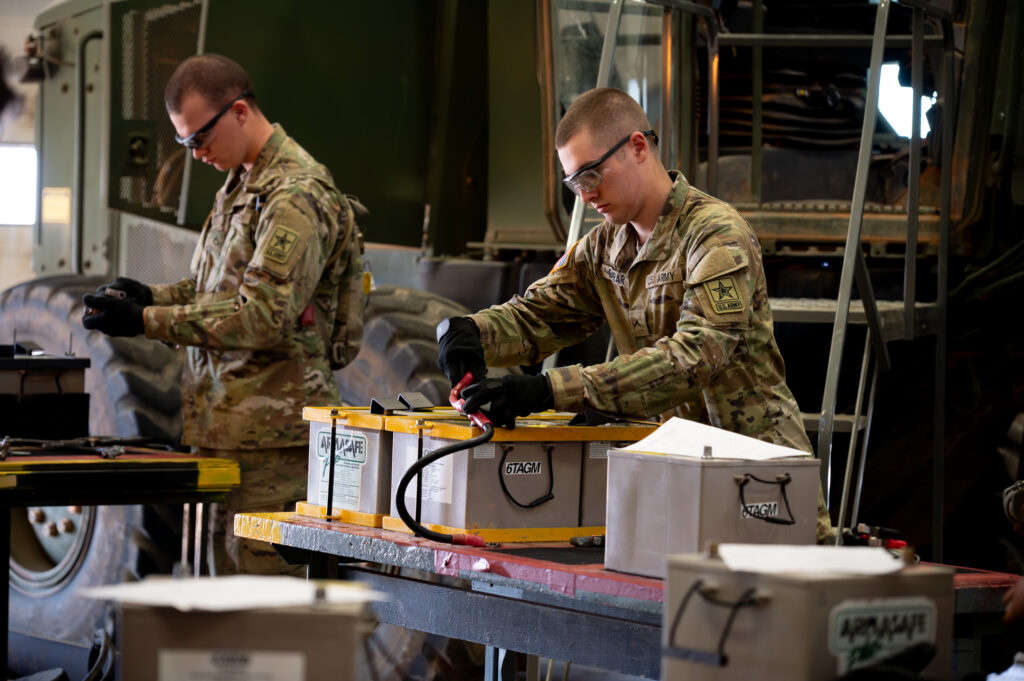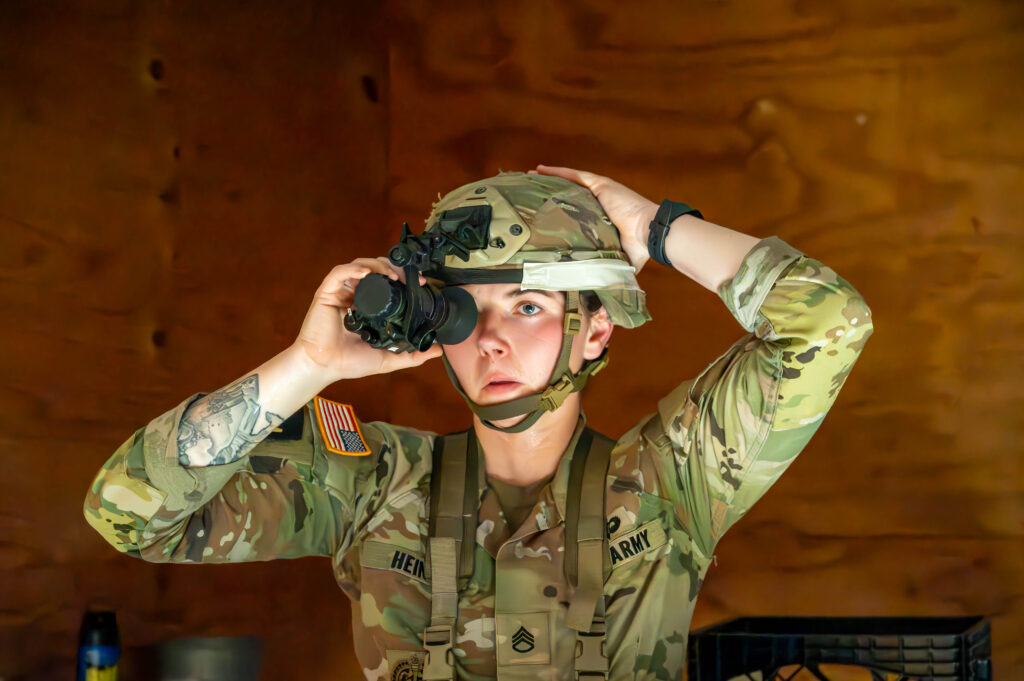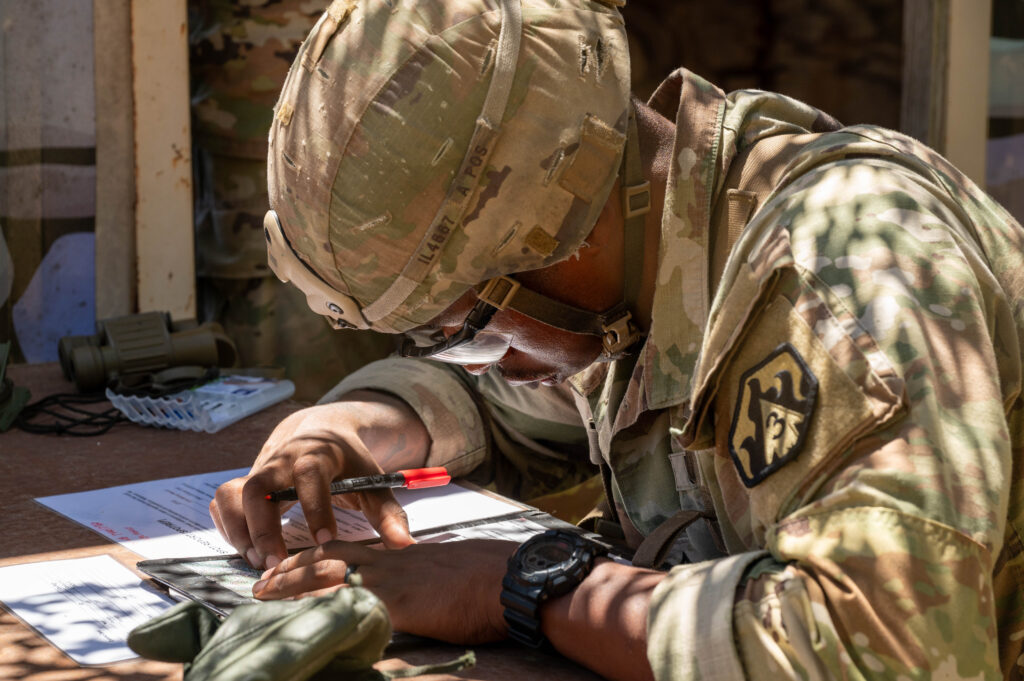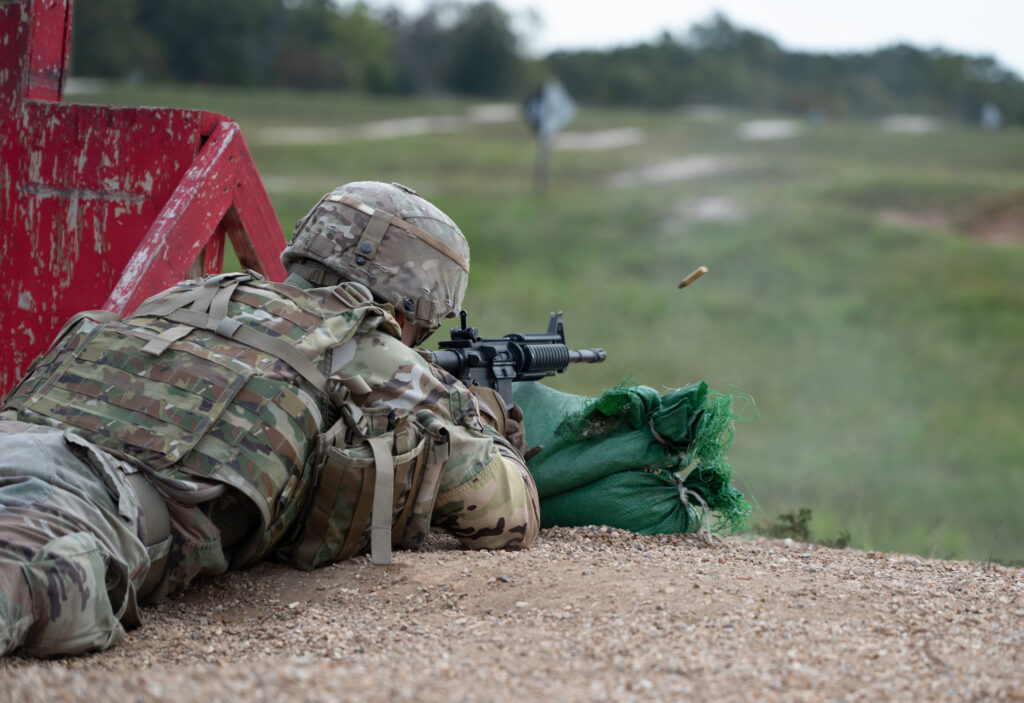Brian Hill
FORT LEONARD WOOD, Mo. (Nov. 23, 2020) — Five Soldiers attending the U.S. Army Prime Power School’s Power Line Distribution Course here demonstrated knowledge gained over the past 10 weeks during a Storm Night exercise Nov. 11 and 12, and a Lineman’s Rodeo competition Tuesday.
At the Rodeo, the students — who graduate the course Friday — completed four graded tasks that required them to climb wooden poles and perform their duties from 40 feet above the ground.
One of the course participants, Spc. Robert Bandewalle, a Reserve Soldier from Cranston, Rhode Island, said the hurt man rescue event was the most challenging for him.
“Every minute counts … you have to have everything organized,” he said.
Bandewalle said he looks forward to using the skills he’s learned throughout the course as a civilian and a Soldier.
“Everything we’re doing here I know will carry over to the civilian side and also when I get back to my unit,” he said.
According to Prime Power School 1st Sgt. Mark Verry, everyone worked “incredibly hard” to meet all course expectations while also remaining cognizant of COVID-19 risk-mitigation protocols.
“It’s been a consideration throughout,” he said, referring to COVID-19. “Anything the instructors have been able to move outside they have — a lot of it is outdoors normally.”
Verry called Storm Night the culminating event of the course. The students built a functioning power distribution system, which they then had to troubleshoot and repair when a simulated natural disaster knocked out the power.
“The students had to then come in … and they didn’t go home until all of the repairs were made,” Verry said.
It took 15 hours — from 6 p.m. Nov. 11 until 9 a.m. Nov. 12 — but they succeeded in fixing the problems.
“It went well,” Verry said. “This was a smaller class so it took them a little bit longer over all, but they worked really well as a team. They identified all of the problems with their distribution system and corrected all of them.”
Staff Sgt. William Monroe, Power Line Distribution instructor, said the students came up with “many great plans along the way.”
“The students were great,” he said. “They ended up finishing strong and held in there to accomplish the mission.”
Verry said both the Lineman’s Rodeo and Storm Night are intended to help prepare Prime Power Soldiers for what can be one of their most important missions: national disaster response.
“When natural disasters come through any given area — whether it’s an ice storm, a hurricane, an earthquake — and the infrastructure is destroyed, it hampers emergency relief and humanitarian operations,” Verry said. “These Soldiers have that capability to go in to those zones and really affect the mission and improve the daily life of those struggling with that event.”
One of the students, Spc. Michael Mecouch, is reporting to Fort Belvoir, Virginia, after the course. He said he learned an important lesson during the Rodeo’s speed climb event. Commonly referred to as the “egg challenge,” each student is required to carry a raw egg in their mouth while climbing a 40-foot utility pole as quickly as possible.
“Despite getting the fastest time so far, I’m the only one who put a nick in the egg,” he said. “It’s an important lesson to realize that sometimes speed isn’t as important as ensuring the work is right and you’re doing the correct thing — being careful and safe.”
Verry said USAPPS trains an average of 55 students a year. In addition to the distribution course, three additional skills identifier courses are also taught here — for electricians, instrumentation technicians and mechanics — along with the 12Q Army Reserve course and a separate Advanced Leader Course for Soldiers being promoted to staff sergeant.
The courses involve academic subjects such as mathematics, physics, electrical and mechanical engineering — taught by adjunct professors from Lincoln University in Jefferson City, Missouri.
Verry said the graduation ceremony will be an outdoor event with seating fit for the lineman profession: cut up utility poles.
“They’re poles that were used in the course,” Verry said. “Because of the amount of climbing the students do, the poles last just one course. The students actually replace them as part of the cleanup. They cut those up into 18-inch segments to use as seats at their graduation.”

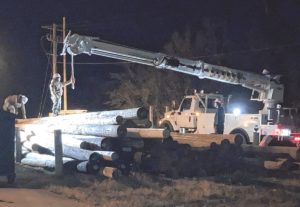

-30-
About Fort Leonard Wood
Fort Leonard Wood is a thriving and prosperous installation that has evolved from a small basic training post more than 75 years ago to a premier Army Center of Excellence that trains more than 80,000 military and civilians each year.
Fort Leonard Wood is home to the U.S Army Maneuver Support Center of Excellence and three U.S. Army schools: the U.S. Army Engineer School; U.S. Army Chemical, Biological, Radiological and Nuclear School; and the U.S. Army Military Police School. In addition to training engineer, CBRN and military police specialties for the Army, Fort Leonard Wood also provides gender-integrated in-processing and Basic Combat Training for new Soldiers.
Fort Leonard Wood also hosts and trains with the largest Marine Corps Detachment and Air Force Squadron on any Army installation as well as a large Navy construction detachment.
More information about Fort Leonard Wood is at: https://home.army.mil/wood/index.php/about/mission
